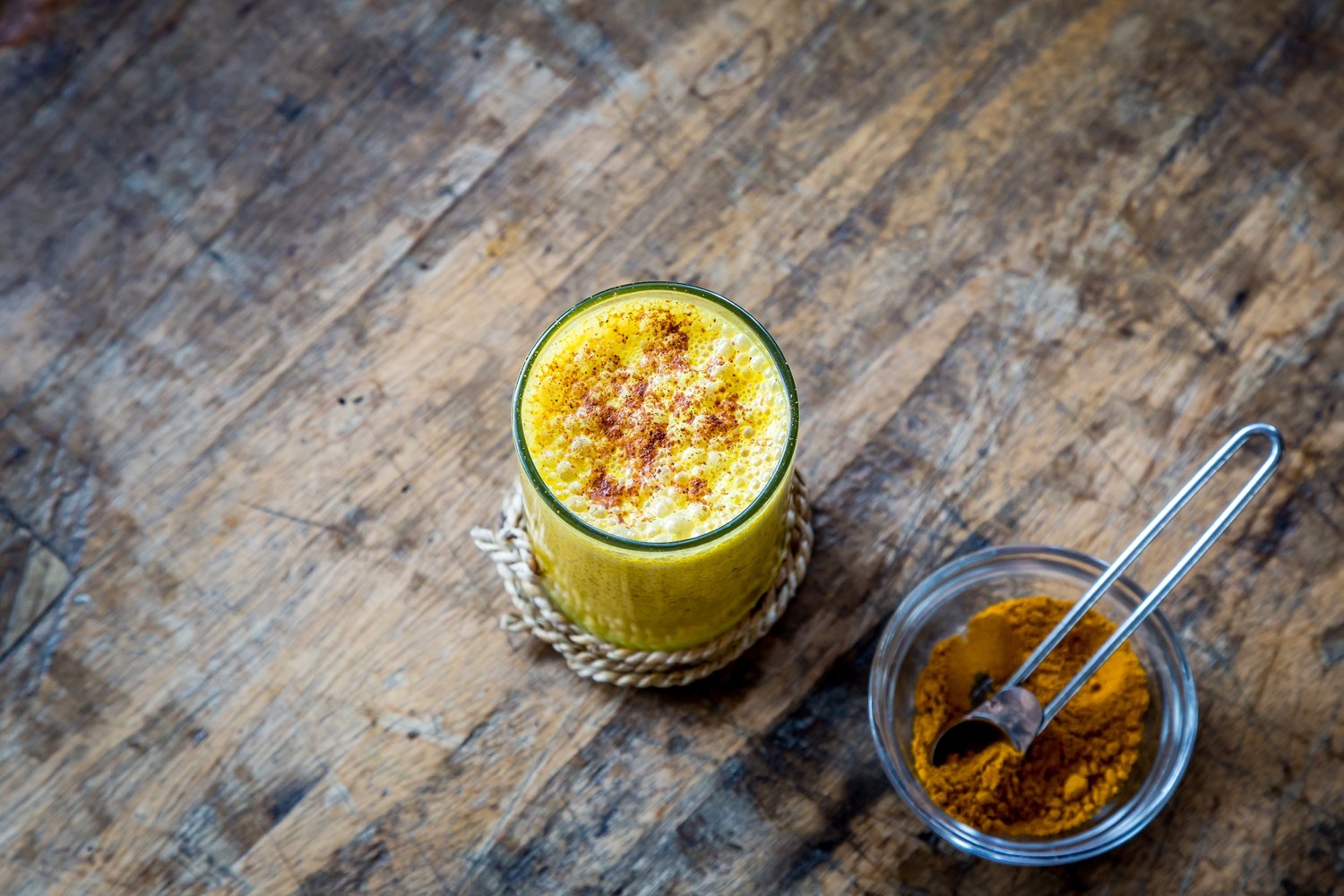at a glance
What’s the connection between PCOS and chronic low grade inflammation?
Table of Contents
- 01 - Why is it important to consider inflammation and PCOS?
- 02 - What is inflammation?
- 03 - How Would I Know If I Have Inflammation?
- 04 - How Can We Decrease Inflammation?
- 05 - Anti-Inflammatory Foods
- 06 - Herbs and Spices that Lower Inflammation
- 07 - Can my doctor help me with inflammation?
- 08 - Summary
Why is it important to consider inflammation and PCOS?
PCOS is a hormonal and metabolic syndrome causing symptoms like fertility problems, insulin resistance, fatigue and so much more. Polycystic ovarian syndrome (PCOS) has a negative effect on hormone levels in women. This is true of both sex hormones and endocrine hormones. For many years this condition has been treated like it’s only important for women’s reproductive health: when they are trying to grow their family. That is just not what the evidence shows. There is research showing that women with PCOS have higher levels of inflammation than those without PCOS.
Emerging research shows that low-grade chronic inflammation is something we need to be paying attention to for thorough evaluation and treatment of PCOS. Basically, if your doctor isn’t monitoring for inflammatory markers and helping you treat any elevated markers, that is not thorough care. This stuff matters, it can affect symptoms, but it also has other intimidating consequences like impacting your risk of heart disease and cardiac events.
What is inflammation?
Inflammation is a natural process of the body. Inflammation is your body’s natural response to fighting off pathogens or foreign substances in the body, and is helpful when dealing with illness. Acute inflammation is a good thing in times of illness. An inflammatory response is something your immune system creates to help promote healing. The problem happens when this system goes awry.
In times where there is no acute illness for your body to respond to we would expect these inflammatory markers to decrease. In women with polycystic ovary syndrome, some of these inflammatory markers stay elevated. This follows the adage that there can be “too much of a good thing.”
Not only is the quantity of inflammatory markers something we care about, what those inflammatory markers are activated to impact or destroy is also important. At times we have an unfortunate circumstance when our body’s own immune system triggers an inflammatory response to its own tissues.
If you’ve been around anyone that is aging you have likely heard about inflammatory processes like arthritis. But, inflammation doesn’t just affect joints – it can actually impact organs and organ systems in our body.
Is PCOS linked to inflammation?
PCOS appears to have an increase in inflammatory markers such as white blood cells, CRP IL-18 and cytochrome P. These are just fancy cells and proteins that do important things in the body and are mostly linked to the immune system. PCOS is known to affect the immune system by activating certain inflammatory cells and causing an increase in inflammatory proteins. The increase in these inflammatory markers can also lead to other problems including increased oxidative stress or endothelial dysfunction.
The inflammation linked to PCOS is a chronic state of inflammation. It’s fairly constant and persistent and has been shown to lead to many other problems, such as a decreased immune response, cardiovascular disease, and even decreased fertility.

Could Inflammation Play a Role in Causing Polycystic Ovary Syndrome?
There are many things that have not yet been studied in PCOS patients. We know that it is a heterogenous disease. That simply means that it has many contributing factors. It’s etiology (or contributing factors) are complex and there are many of them.
Areas we understand impact the development of PCOS:
Excessive oxidative stress
High levels of androgens that a baby is exposed to in utero
Genetics
Exposure to environmental contaminants and endocrine disrupting chemicals such as BPA
Insulin Resistance
Stress
Chronic low grade inflammation
While inflammation is not the only impactful condition that promotes PCOS, it is one of many and also one of the few things that you may have some level of control over. This makes it a very compelling area to focus attention on. What you will find as we continue is that what improves inflammation is likely to also improve other key areas of your health.
It’s not just systemic inflammation that matters, ovarian inflammation matters too.
As new evidence emerges it is becoming clear that the inflammation in PCOS is not just something to consider for long term health risks. It may actually impact your ovaries, their ability to ovulate and may be a central role in the ovary creating more testosterone. Local inflammation within the ovary can actually cause follicles that are developing to create more testosterone and other androgens. There are other abnormalities in PCOS like higher levels of ferritin and iron which actually leads to lower levels anti-inflammatory proteins. This makes the ovary at a disadvantage when it comes to fighting the levels of inflammation that present.
How Would I Know If I Have Inflammation?
You can start by getting lab tests to assess common inflammatory markers. These are labs you will likely need to advocate for as they aren’t common in your annual physical. Most check ups with your physician include running labs like a complete blood count (CBC) and a comprehensive metabolic panel(CMP). These can be helpful to assess inflammation in other ways as our immune systems also have certain white blood cells like lymphocytes and monocytes that can show an inflammatory response. You can check out a complete list of labs to request from your doctor here.
Common Inflammatory Markers to Request:
HS-CRP: High sensitivity C-reactive protein, or HS-CRP is a protein that increases when there is inflammation present in the body. The high sensitivity test is more specific than just a CRP test. It detects even the slightest change of CRP within the normal range. While CRP is a great indicator of inflammation, it is a non-specific test, meaning the cause of the inflammation will not be determined through this test. Women with PCOS have been shown to have increased CRP levels chronically. This particular inflammation marker does have a correlation with heart disease and the plaque deposits in the our veins and arteries(our endothelial tissue). This means that it can affect risk of not only heart attack but stroke.
It is important to continue monitoring your CRP levels if you have seen even one increased CRP lab value before. You will want to make efforts to decrease inflammation and then follow up to see if your lab markers are correlating with the lifestyle changes you implement.
Homocysteine: High levels of homocysteine can be indicative of inflammation as well. As homocysteine levels rise your body will work to break homocysteine down. Breaking homocysteine down requires high levels of vitamins B12, vitamin B6 and vitamin B9 (or folate). If homocysteine levels are high in the body, this is can cause of a vitamin deficiency in any of these B vitamins. These are essential vitamins for energy levels, fertility and well – basically every cell process in the body.
IL-6: Interleukin-6, or IL-6, is a pro-inflammatory protein present in chronic inflammation. It is part of your body’s natural immune response, and has been shown to be closely associated with insulin resistance and cardiovascular abnormalities. High levels of insulin resistance that are common with polycystic ovarian syndrome (PCOS) will cause high levels of IL-6.
Since inflammation is a natural process in the body, we do have times we expect to see higher levels, for instance in times of illness or healing. However, monitoring these labs at an annual visit with your doctor, especially once noted in the higher range, can be a great long term strategy.
Would I have symptoms of chronic low grade inflammation?
Symptoms of inflammation can be very prominent. When you get a cut, your body sends extra white blood cells to the area, so you may see something like puss. It’s also common to see redness, heat, and swelling in times of inflammation. When we are talking about chronic low grade inflammation it can be harder to know which symptoms correlate with this type of inflammation because they can cross over with many other conditions.
Symptoms of chronic low grade inflammation:
Headaches
Joint pain
Joint stiffness
Sore muscles
Weakened immune system (this may present like catching every illness that seems to be going around)
Swelling
Gastrointestinal problems
Bloating
Fatigue
Resistant weight loss
Do you look at that list and just chuckle? It wouldn’t be hard for most of us to check off a few of those items with PCOS and hormone issues. That’s why having a combination approach in checking both laboratory markers and monitoring symptoms can be helpful. Especially so when you could be having a headache related to low grade inflammation or dehydration (and a million other reasons).
How Can We Decrease Inflammation?
There are a number of different ways to directly impact levels of inflammation with diet and lifestyle. Like many other areas of polycystic ovarian syndrome (PCOS): inflammation is something that is impacted by every meal. Since we eat so many times in a day you have a large amount of opportunities to make an impact. This can feel overwhelming, but I’d recommend you look at it as an opportunity to make huge strides towards health and lowering inflammation at every meal.
Lifestyle interventions to improve inflammation in PCOS:
Manage blood sugar and decrease levels of insulin
Increase levels of anti-inflammatory foods
Decrease exposure to foods and chemicals that are pro-inflammatory
Increase intake of spices and herbs that combat inflammation
Exercise regularly
Consider medications with your physician that can lower inflammation
Weight loss
The role of blood sugar management and improving insulin resistance to combat inflammation:
Lowering insulin levels is one key area that can really help improve overall levels of inflammation. Blood sugar regulation is the name of the game with PCOS management. By eating a large amount of highly processed carbohydrates and sugars we can have large amounts of blood sugar dysregulation. This is especially true when highly processed foods and large amounts of carbohydrates are consumed without adequate protein and fiber to help with how quickly our body accesses these energy sources. As our body experiences blood sugar spikes repeatedly – we make larger amounts of insulin. These chronically high levels of insulin cause inflammation in our bodies and can create an imbalance in our hormones.
As insulin levels remain chronically high we see the downstream affects of that in our body composition. Higher levels of insulin can contribute to higher levels of adipose tissue (fat tissue). This adipose tissue is unfortunately fairly efficient when it comes to creating additional inflammatory markers. So a vicious cycle is created where higher levels of insulin create both inflammation and an environment where more weight gain is probable. As weight is gained and adipose tissue increases more inflammatory cells are created. Then this cycle repeats itself.

There are Foods that are Considered Anti-Inflammatory
Creating a PCOS friendly plate centered around quality protein, colorful vegetables, healthy fats and some carbohydrates, will help to balance blood sugar levels and consequently decrease inflammation within your body. It’s important that more often than not that higher fiber and less processed carbohydrates are chosen. The minerals and vitamins present in whole food carbohydrates can help combat the impacts on blood sugar that carbohydrates present.
You can also increase anti-inflammatory foods in your diet to help manage your PCOS. Some of the most antioxidant rich anti-inflammatory foods are going to be brightly colored fruits and vegetables and quality oils high in long chain fatty acids.
Anti-inflammatory Foods to increase in your diet:
Berries (strawberries, cherries, blueberries)
Dark leafy vegetables
Nuts and seeds (walnuts and almonds)
Olive oils
Avocados
Fatty fish (salmon)
Green tea
Food Choices Can Make Inflammation Worse
Food choices can increase production of inflammatory factors in PCOS as well as directly stimulate excess androgen production and influence ovulation issues. In PCOS, a diet high in carbohydrates may lead to increased low grade inflammation. Inflammation can impact egg quality and also impact how much progesterone your body makes after ovulation. This is why it is incredibly important to decrease inflammation with PCOS, and even more so if you are looking to conceive.
Foods to Limit or avoid to decrease inflammation:
Highly processed foods
Inflammatory oils (canola and other industrial seed oils)
Harsh chemicals (pesticides and other food production chemicals)
Artificial food dyes
Foods that you may have a specific reaction to like: food allergies or sensitivities

Herbs and Spices that Lower Inflammation:
Spices are a great affordable and accessible way to boost the anti-inflammatory benefits of food. That’s not the only benefit, they also taste great too! Smelling these spices while cooking helps your body create digestive enzymes allowing you to better digest your food!
Some of the most potent and healing spices are:
Ginger
Cinnamon
Turmeric (combined with black pepper for full benefits)
Garlic
Ginger:
Ginger is great in the form of tea, or grated and cooked into stews or curries. Ginger is not only anti inflammatory, but also anti-nausea, and may help with any morning sickness experienced throughout pregnancy. Ginger is great to keep a large chunk of in your freezer. Some grocery stores also sell crushed ginger frozen or pastes that you can keep refrigerated. This is a lovely spice to add to teas that have warmer spice profiles like chai tea.

Cinnamon:
Cinnamon is one of the most versatile spices and is less intimidated for most of us. It can be added to chia seed puddings, my high protein pancake recipe, or any baking dish! I also like to add a dash of cinnamon to my spaghetti sauce to lower the acid taste of the tomatoes. Remember that chai tea recommendation above? Cinnamon is also tasty when combined with ginger or other spices in a tea. Cinnamon is a spice with many benefits when it comes to PCOS, it has been shown to improve blood glucose levels and lower insulin resistance.

Turmeric:
Turmeric is one of the most potent anti-inflammatory spices, and has been used for centuries as a way to boost immunity and heal disease. The component in turmeric that is so powerfully anti-inflammatory is curcumin. It’s so anti-inflammatory that curcumin is becoming a leading supplement for people with inflammatory conditions. Turmeric will be most effective when combined with black pepper- this is true in supplement form and in culinary applications. Add turmeric to stews, rice (for a beautiful color!) or teas…but don’t forget to add a pinch of black pepper to whatever you make! This has also become popular in drink form as “golden milk”.

Garlic:
Garlic may be the easiest anti-inflammatory spice to add to your daily diet. Garlic is a foundation to most dishes, and can be sautéed with onions to create a healing and flavorful base to your meal! Whenever I see garlic in a recipe I always consider increasing the portion of it. I mean when someone says “one clove of garlic” I typically think they are just teasing me.
Regular Exercise can Keep Inflammation at Bay
So with a quick google search you will see that during exercise there is actually an increase in things called inflammatory cytokines and oxidative stress. However, after exercise is complete we see an increase in anti-inflammatory substances.
Regular exercise is actually correlated with lower levels of inflammation. So while during exercise you may see an increase in these substances, that is, if you were looking at blood markers while doing exercise. Who does that? Regular exercise is actually great for inflammation. This is likely also because regular exercise will increase insulin sensitivity. This is the opposite of insulin resistance. As our body becomes more sensitive to insulin we will make less of it. Insulin increases inflammation so decreasing chronically elevated insulin levels will have a positive impact on chronic low grade inflammation.

Don’t get stuck in the weeds with what kind of movement or exercise. What kind of movement will you do consistently? What kind of movement do you enjoy? What is realistic for you right now? Get started with that.
What Supplements Lower Inflammation?
Just like foods and spices have an impact on chronic inflammation and PCOS symptoms, we see many of these same substances can come in forms and doses that can cool the flame of inflammatory processes.
Curcumin
This has become an incredibly popular supplement in recent years. This is the active compound in turmeric. You can take larger amounts of this active ingredient to improve symptoms more quickly. Many studies show 500 mg of curcumin. Looking for a supplement that also has black pepper in it will be important for activating an anti-inflammatory response from curcumin. Think about the black pepper as the keys to the car. The car can take you places, but not until it’s turned on. Curcumin is activated by the black pepper. Taking over 500 mg can cause symptoms like nausea, headaches or diarrhea.
Fish Oil
Fatty fish have very high concentrations of omega-3-fatty acids. These fatty acids are incredibly anti-inflammatory. Very few people eat the recommended amount of fatty fish weekly, so adding in fish oil supplements, even a few days per week, can really impact inflammatory responses in the body. This is another supplement that has multiple applications for women with polycystic ovary syndrome. It can help with factors related to fertility and cardiovascular disease. Choosing a high quality fish oil that considers sourcing is very important. One of my favorites is listed in the protocol linked here.
Vitamin D
There have been multiple studies linking chronically low levels of vitamin D with higher levels of inflammatory markers. Vitamin D is important for metabolism, hormones, immune function, bone status and so much more. This is also a nutrient very difficult to obtain adequate amounts of through our diet alone. Vitamin D is recognized as a nutrient our body has the capacity to create when our skin is exposed to the sun. However, most of the population does not live close enough to the equator and typically does not have enough skin exposed to the sun to make adequate amounts of vitamin D.
Supplementation becomes incredibly important in the PCOS population. Vitamin D status has a reverse correlation with metabolic syndrome. That means, as vitamin D status goes up the degree of metabolic syndrome decreases. Vitamin D also plays a role in insulin regulation. Studies show low vitamin D status is related to higher levels of miscarriage and infertility. Are you convinced it’s important yet? It is.
Vitamin D is a supplement that many are encouraged to exercise caution with and have regular testing if you are taking higher amounts of. In all my years of clinical practice, unless someone has been taking 4,000-8,000 IU daily, I have not seen optimal numbers of vitamin D. In fact, this is the one nutrient I can almost always count on being too low. Vitamin D is a fat soluble vitamin, meaning our body has a capacity to store it over longer periods of time. Our body lacks that capacity with water soluble vitamins like vitamins in the B family and vitamin C. As vitamin D is fat soluble, it is something to be mindful in your approach to obtaining adequate levels.
Magnesium and vitamin K2 are important partners for vitamin D. It is best to make sure you are taking in enough magnesium via diet or supplementation to help utilize vitamin D. Vitamin K2 is important to help the calcium that vitamin D carries around to be deposited in the bones instead of in the arteries. The type of vitamin D you take is also important. Vitamin D2 is very inexpensive to make compared to vitamin D3. However, vitamin D3 is much more effective at raising serum(blood) levels of vitamin D.
In western medicine it is widely accepted that any lab value for 25-OH-vitamin D between 30 ng/ml and 100 ng/ml is adequate. Most individuals do not even reach the lower end of this range. It’s more common in my practice to see people with vitamin D levels in the teens and low twenties than to see adequate numbers. In functional and integrative medicine the range that is typically considered as optimal is between 50 ng/ml to 80 ng/ml. Work with your practitioner to find dosing that is optimal for your goals and current lab values.
Resveratrol
In my opinion this anti-oxidant that powerfully fights inflammation and oxidative stress is worth trying to obtain through food choices. It is found in purple skinned fruit like blueberries and grapes. This is typically the anti-oxidant that gives red wine it’s image as a healing elixer. Resveratrol is also found in chocolate. As I (the author of this article) am a registered dietitian, you will always see me try to help nurture a “food first” approach. Yet, this anti-oxidant may be worth taking in higher doses at certain times.
There is evidence in an obese population that supplementing with resveratrol has been shown to improve HOMA-IR scores(a calculation to provide level of insulin resistance), lower blood pressure, lower blood glucose levels, lower triglycerides, and inflammation markers. In times where inflammation levels have been reported high in blood values, insulin resistance is in need of improvement, and when fertility is of prime concern, resveratrol can be a powerful way to optimize these factors. Consider focusing on ways to incorporate purple skinned fruit in a balanced way with protein. Additionally consider supplementation; many studies have doses of 150 mg- 500 mg. Check with your provider on what may be the best route forward for your particular goals and needs.
Green Tea Extract
This is a compelling option for those with PCOS symptoms for multiple reasons. There is evidence that taking green tea extract combined with exercise that inflammatory blood markers decrease, more than if you were exercising alone. Green tea has a number of anti-oxidant and anti-inflammatory properties to it, but it is theorized that many of the benefits come from a substance called: epigallocatechin-3-gallate (EGCG). EGCG is something that can also help you feel calm while consuming something with caffeine. It’s great that nature paired it with green tea leaves. Green tea has also been shown to lower testosterone and other androgen excess, so if you are someone battling inflammation and high levels of androgens – green tea or green tea extract may be helpful.
Green tea is also something that is pro-metabolic. It essentially can help raise your metabolism, so pairing green tea with blood sugar balancing dietary principles and increasing movement, not only can PCOS symptoms improve, but all these interventions are supportive of improving insulin sensitivity, metabolic syndrome and the very root causes of PCOS.
Brewing green tea and keeping it in your fridge to sip on all week is one great way to get these benefits, but supplementing is also an option.
Vitamin C
This is a supplement most people are familiar with and likely even have in their cupboards. Vitamin C is important for over-all immune health. Inflammation is a process that is moderated by the immune system and keeping healthy amounts of anti-oxidants is important for immune function and inflammation regulation.
If you have a diet rich in fruit and vegetables you likely are getting enough vitamin C. This is a great vitamin to consider getting additional sources of if inflammation levels are indicated as high based on lab markers like c-reactive protein, homocysteine or interleukins. Vitamin C is a supplement that high doses of can cause loose stool or diarrhea so monitor for those symptoms when taking vitamin C.

Can my doctor help me with inflammation?
Working with your doctor or health practitioner to help get adequate testing and develop an appropriate care plan is very important. Sometimes the source of inflammation is related to metabolic abnormalities, insulin resistance and even obesity. Other times inflammation is due to illness, trauma, chronic stress or even more insidious diseases. It is important to work with your physician to see if an inflammation source is available.
Doctors typically have options to help combat inflammation through prescriptions. The most common options are steroids. These can be very powerful at helping calm a very severe inflammatory process and may at times be needed. Choosing to work with a physician and taking a prescription to help with symptoms does not need to be looked down upon. Treating your body and what it needs for healing is important. Taking medication doesn’t have to be done in a vacuum either. You can implement many of the diet and lifestyle options listed in this article while working with your physician.
Work with a doctor if you are struggling and consider steroids. Your doctor can suggest the best and most personalized option for you.
Unmanaged Auto-immune Conditions Can Increase Inflammation
Auto-immune conditions can be incredibly inflammatory and cause many severe symptoms. As with many of these conditions there are likely some level of auto-immune triggers that make reactions more severe.
An auto-immune condition is when your own immune system starts attacking your body’s own tissues and organs. So while this system has been designed to keep us safe from pathogens and disease, it can start working in a way that it wasn’t designed to and mount an attack on our own tissues.
As immune processes very typically include a healthy level of inflammation – an autoimmune reaction garners that same inflammatory response, only in this case it isn’t welcomed. Many of the auto- immune conditions have need for combined approaches to keep inflammation levels low.
An example of this is celiac disease. This is a disease where the body’s own tissue within the small intestine starts being broken down when a specific genetic abnormality is turned on and the body is exposed to gluten. Removing gluten from the diet is necessary for someone with this auto-immune condition. Failure to do so can lead to many issues: vitamin deficiency, pain, infertility and more.
Once someone has one auto-immune condition, it is common to develop others, so working to keep inflammation levels low and keeping nutrient status high is very helpful.
Summary
Women with PCOS struggle with inflammation more often than those without PCOS. Inflammation can sneak into our lives in the food we eat, the products we use, or the stressors we deal with.
There are options for decreasing inflammation that can greatly decrease negative symptoms that trouble women with PCOS. Perhaps one of the most important foundations is blood sugar balance, something we see repeatedly as a benefit for those of us with PCOS. You can also increase your fruit and vegetable intake, and incorporate some anti-inflammatory spices.
You can also request the blood markers of inflammation at your annual visits to monitor inflammation levels. Work with your doctor or a dietitian to find the best most personalized approach to decreasing inflammation.
Sources:
What is inflammation, and why is it dangerous? – Harvard Health
Foods that fight inflammation – Harvard Health
Levels, Tests, High Homocysteine Levels
Status of Homocysteine in Polycystic Ovary Syndrome (PCOS)
https://pubmed.ncbi.nlm.nih.gov/27104030/
https://pubmed.ncbi.nlm.nih.gov/32063570/
https://pubmed.ncbi.nlm.nih.gov/30596263/
https://pubmed.ncbi.nlm.nih.gov/32603576/

I’M CAITLIN JOHNSON!
You are ready to trust your body again. You are ready to fix your hormones and fall in love with your body. Let me show you the way through comprehensive courses to manage your hormones and boost your fertility with PCOS.
Are you
struggling to get pregnant and you don’t know what step to take next. Join Find Fertility today and discover the process hundreds have used to get pregnant and have their dream baby.



